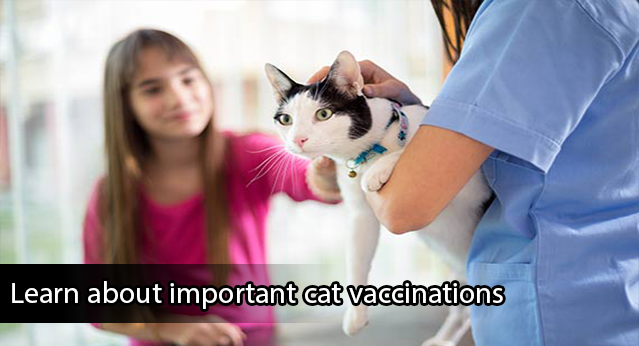Essential Cat Vaccinations A Guide to Feline Health
In the realm of pet care, safeguarding our feline companions against potential diseases and health risks remains a paramount concern. Understanding the crucial role vaccinations play in fortifying a cat’s immune system is essential for every responsible pet owner.
The Significance of Cat Vaccinations
Vaccinations are pivotal in preventing various infectious diseases that can afflict cats. These immunizations are designed to stimulate the immune system, enabling it to recognize and combat specific viruses or bacteria effectively.
Core Vaccines for Cats
- Feline Viral Rhinotracheitis (FVR): Protects against a highly contagious upper respiratory infection.
- Feline Calicivirus (FCV): Shields against another common respiratory infection in cats.
- Feline Panleukopenia (FPV): Guards against a severe and often fatal disease caused by a parvovirus.
- Rabies: A vital vaccination required by law in most regions, ensuring protection against the rabies virus.
Why do cats purr Unravel the mystery
Non-Core Vaccines for Cats
- Feline Leukemia Virus (FeLV): Recommended for outdoor cats or those in multi-cat households.
- Feline Immunodeficiency Virus (FIV): Considered for cats at risk of exposure to the virus due to their environment or lifestyle.
Vaccination Schedule and Considerations
Understanding the appropriate vaccination schedule and individual cat’s needs is crucial. Vaccinations should commence during kittenhood, with booster shots provided at specific intervals as recommended by a veterinarian.
Factors Influencing Vaccination Decisions
- Cat’s Lifestyle: Indoor or outdoor habits influence the exposure risk to certain diseases.
- Health Status: The overall health and medical history of the cat are pivotal considerations.
- Geographical Location: Prevalence of certain diseases in a region influences the choice of vaccinations.
Addressing Concerns and Misconceptions
Vaccination Safety
Modern vaccines are rigorously tested for safety and efficacy before approval. Adverse reactions, though possible, are exceedingly rare and often minor, typically resolving quickly.
Over-Vaccination Debate
There has been ongoing discourse regarding the potential risks of over-vaccination. Veterinarians follow tailored protocols, ensuring vaccinations are administered judiciously, mitigating unnecessary risks.
Conclusion
Cat vaccinations are a cornerstone of responsible pet ownership, providing a shield against various potentially fatal diseases. Regular consultations with a veterinarian to devise a personalized vaccination plan tailored to the cat’s individual needs are imperative.
Remember, safeguarding your feline companion through timely vaccinations not only protects their health but also contributes to the overall well-being of your pet.
FAQs
1. Are vaccinations safe for my cat?
Vaccinations are generally safe; however, like any medical intervention, they can sometimes have mild side effects. Your veterinarian can guide you on what to expect and how to handle any adverse reactions.
2. Can my indoor cat skip vaccinations?
Even indoor cats can benefit from vaccinations as some diseases can be transmitted through various means including contact with other animals, humans, or objects.
3. How often should my cat be vaccinated?
Vaccination frequency varies based on the specific vaccine, your cat’s health, lifestyle, and local regulations. Your veterinarian will create a tailored schedule for your cat.
4. Are there risks associated with vaccinations?
While rare, some cats may exhibit mild reactions like fever, lethargy, or soreness at the injection site. Serious side effects are exceedingly rare but should be reported to your veterinarian immediately.
5. Can an older cat be vaccinated if they missed earlier shots?
Absolutely, older cats can receive vaccinations. Your veterinarian will assess their health and recommend a suitable vaccination plan.



